
凯利风湿病学(英文原版) 1
¥ 69 1.4折 ¥ 510 八五品
仅1件
安徽亳州
认证卖家担保交易快速发货售后保障
作者[美]路迪 著
出版社人民卫生出版社
出版时间2002-08
版次1
装帧精装
货号411
上书时间2024-04-20
- 最新上架
商品详情
- 品相描述:八五品
图书标准信息
- 作者 [美]路迪 著
- 出版社 人民卫生出版社
- 出版时间 2002-08
- 版次 1
- ISBN 9787117049962
- 定价 510.00元
- 装帧 精装
- 开本 其他
- 纸张 胶版纸
- 页数 1788页
- 字数 5234千字
- 【内容简介】
-
More than 20 years ago, in the preface to the first edition of the Textbook of Rheumatology, we suggested that "The field of rheumatology has come of age." What we meant was that rheumatology had shed its strictly empirical base and its host of unproven remedies and become a healing discipline thoroughly grounded in science. We thought it was time for a new textbook, one that reflected this passage through epistemological puberty.
The sixth edition reflects the maturation of rheumatology as a subspecialty. It is instructive to compare the contents of the first and sixth editions. Many chapters have disappeared entirely, and their material has been condensed and incorporated into existing chapters. Consider, for example, that in the basic science section of the first edition we devoted entire chapters to immunoglobulin structure, the contact activation system, and lysosomes (not to mention purine metabolism, a subject dear to the heart of the then senior editor). Cyclic nucleotides and eosinophilic chemotactic factor of anaphylaxis figured prominently in the titles of other basic science chapters. None of these has a place in the Table of Contents of the current edition. Instead, there are chapters dealing with dendritic cells, leukotrienes, mast cells, nitric oxide, fibroblasts, cytokines, and apoptosis. The importance of these topics to understanding the rheumatic diseases was unknown 20 years ago, and some of them hadn't even been discovered! Who can imagine what the scientific basis of rheumatology will be in the 10th edition, 20 years from now? Surely, knowledge obtained from the working through of the human genome will figure prominently. - 【目录】
-
VOLUME 1
Section 1 BIOLOGY OF THE NORMAL JOINT
1. BIOLOGY OF THE NORMAL JOINT
2. COLLAGEN AND ELASTIN
3. MATRIX GLYCOPROTEINS,PROTEOGLYCANS,AND CARTILAGE
4. PROTEINASES AND MATRIX DEGRADATION
5. BIOMECHANICS OF JOINTS
Section 2 IMMUNE AND INFLAMMATORY RESPONSES
6. MACROPHAGES,DENDRITIC CELLS,AND FOLLICULAR DENDRITIC CELLS
7. GENETICS OF RHEUMATIC DISEASES
8. T LYMPHOCYTES
9. B CELLS
10. RHEUMATOID FACTOR
11. ANTINUCLEAR ANTIBODIES
12. IMMUNE COMPLEXES
13. COMPLEMENT
14. NEUTROPHILS AND EOSINOPHILS
15. PROSTAGLANDINS,LEUKOTRIENES,AND RELATED COMPOUNDS
16. THE MAST CELL
17. ENDOTHELIAL CELLS AND NITRIC OXIDE
18. PLATELETS
19. FIBROBLAST FUNCTION AND FIBROSIS
20. CYTOKINES
21. APOPTOSIS
22. AUTOMMUNITY
Section 3 EVALUATION OF THE PATIENT
23. EPIDEMIOLOGY OF THE RHEUMATIC DISEASES
24. EVIDENCE-BASED RHEUMATOLOGY
25. EXAMINATION OF THE JOINTS
26. MONARTICULAR ARTHRITIS
27. POLYARTICULAR ARTHRITIS
28. WEAKNESS
29. THE EYE AND RHEUMATIC DISEASE
30. THE SKIN
Section 4 MUSCULOSKELETAL PAIN AND EVALUATION
31. FIBROMYALGIA
32. OCCUPATIONAL AND RECREATIONAL MUSCULOSKELETAL DISORDERS
33. SPORTS MEDICINE
34. NECK PAIN
35. SHOULDER PAIN
36. LOW BACK PAIN
37. HIP AND KNEE PAIN
38. ANKLE AND FOOT PAIN
39. TEMPOROMANDIBULAR JOINT PAIN
40. HAND AND WRIST PAIN
Section 5 DIAGNOSTIC TESTS AND PROCEDURES
41. ASPIRATION AND INJECTION OF JOINTS AND SOFT TISSUES
42. SYNOVIAL FLUID ANALYSIS AND SYNOVIAL BIOPSY
43. IMAGING
44. ARTHROSCOPY AND SYNOVECTOMY
45. LABORATORY EVALUATION OF INFLAMMATION
46. BIOLOGIC MARKERS
Section 6 SPECIAL ISSUES
47. NUTRITION AND RHEUMATIC DISEASES
48. PSYCHOSOCIAL MANAGEMENT OF RHEUMATIC DISEASES
49. GERIATRICS AND THE RHEUMATIC DISEASES
50. ALTERNATIVE CARE FOR ARTHRITIS AND RELATED MUSCULOSKELETAL DISEASES
51. CHRONIC PAIN MANAGEMENT
52. REHABILITATION OF PATIENTS WITH RHEUMATIC DISEASES
53. HEALTH OUTCOME ASSESSMENT
Section 7 CLINICAL PHARMACOLOGY
54. DEVELOPING A CLINICAL TRIAL DESIGN
55. NONSTEROIDAL ANTI-INFLAMMATORY DRUGS
56. GLUCOCORTICOIDS
57. METHOTREXATE
58. SULFASALAZINE
59. ANTIMALARIAL DRUGS
60. GOLD AND PENICILLAMINE
61. IMMUNOREGULATORY DRUGS
62. BIOLOGIC AGENTS FOR THE TREATMENT OF RHEUMATOID ARTHRITIS
63. TETRACYCLINES
INDEX
VOLUME 2
Section 8 RHEUMATOID ARTHRITIS
Section 9 SPONDYLOARTHROPATHIES
Section 10 SYSTEMIC LUPUS ERYTHEMATOSUS AND RELATED SYNDROMES
Section 11 VASCULITIC SYNDROMES
Section 12 SCLERODERMA AND MIXED CONNECTIVE TISSUE DISEASES
Section 13 STRUCTURE,FUNCTION,AND DISEASE OF MUSCLE
Section 14 RHEUMATIC DISEASES OF CHILDHOOD
Section 15 CRYSTAL-ASSOCIATED SYNOVITIS
Section 16 OSTEOARTHRITIS,POLYCHONDRITIS,AND HERITABLE DISORDERS
Section 17 ARTHRITIS RELATED TO INFECTION
Section 18 ARTHRITIS ACCOMPANYING SYSTEMIC DISORDERS
Section 19 DISORDERS OF BONE AND STRUCTURAL PROTEIN
Section 20 TUMORS INVOLVING JOINTS
Section 21 RECONSTRUCTIVE SURGERY FOR RHEUMATIC DISEASE
INDEX
点击展开
点击收起
相关推荐
— 没有更多了 —








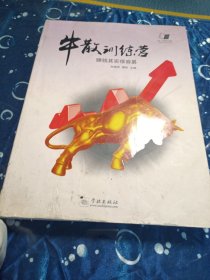







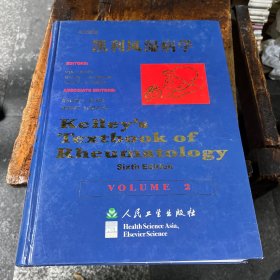




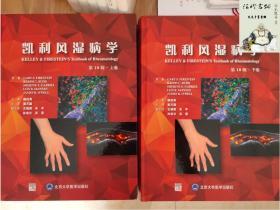
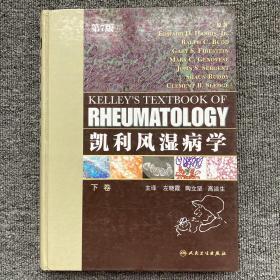
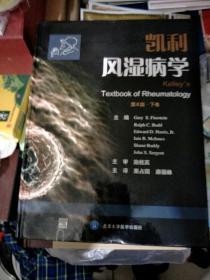
以下为对购买帮助不大的评价